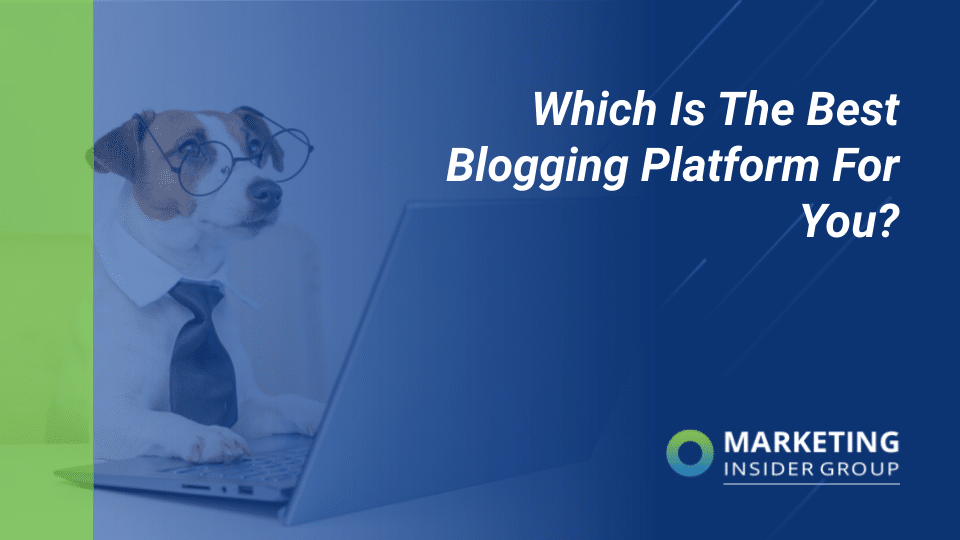
What is a Content Strategy Platform and Why You Need One
A strategy is a must for any business investing in content marketing. Your content marketing strategy should set out the goals you plan to achieve by publishing content, and how you’re going to achieve them.
An increasing number of businesses are discovering the benefits of using a content strategy platform to plan and execute their content marketing campaigns.
These platforms offer the opportunity for a more efficient and streamlined workflow, better communication and collaboration between marketers, writers, content strategists, and stakeholders, more effective content, and an optimized method to publish and promote content.
What is a Content Strategy Platform?
A content strategy or marketing platform is a suite of software tools designed to help you achieve your content marketing goals.
A typical content marketing platform might include:
- Tools to help you research and create content
- Organizational tools for archiving and finding existing content
- Analytics software to measure the effectiveness of existing content
- Scheduling and automation tools to aid in the distribution and promotion of content to your audience.
Your content platform should act as a central hub so you can get an overall view of all your content and how it’s performing. A platform will help with planning and analyzing your content marketing campaigns and individual pieces of content.
In addition to this, your content strategy platform should integrate with tools you already use such as your social media platforms, email marketing software, web analytics programs, and CRM. This optimizes your workflow and ensures that you’re not duplicating data.
How a Content Strategy Platform Can Help Your Business
If you’re not currently using a content strategy platform in your business, you probably have a few different systems for planning and managing your content marketing campaigns.
This might include:
- Individual content and planning documents (physical and digital)
- Spreadsheets
- Calendars
- Social media platforms
- Email conversations between team members
- Analytics programs
- SEO software.
Not only is it difficult to pull all your information and data together when it’s spread over all these different platforms, but it’s also common for different teams within the same organization to be using different tools to perform similar functions. When these teams need to work together, it can be difficult to agree on which tool and strategy are the best ones.
A good content marketing platform replaces or integrates all these different systems, providing one unified place for your whole team to plan and execute your content strategy, seamlessly.
This means you can work faster and more efficiently, and that everyone on your content marketing team can communicate effectively and access the information they need to work together.
Another huge benefit of using a content marketing platform is that it makes it easy for you to track the effectiveness of your content and measure ROI.
It’s important for marketers to understand how each of their chosen channels is performing. Also, measuring the ROI of your content marketing campaigns might be vital for justifying further investment in content to other departments or upper management. Less than half of the respondents to a survey carried out by the Content Marketing Institute said that they measured the ROI of content. While the task may seem a challenging one, software tools can simplify the process of calculating content ROI.

The Functions of a Content Strategy Platform
Just as when you’re following your content strategy manually, you’ll go through several stages when using a content strategy platform to assist in your content marketing campaigns.
1. Research
Before you create your content you’ll need to research your topics and your audience to make sure you’re writing about subjects that will be of interest.
This step might include:
- Gathering insights about your audience from your CRM, customer surveys, email communications, and social media
- Keyword research for SEO
- Looking for trending topics in your niche
- Competitor research to see what content is already performing well in the same industry
2. Planning
Once you’ve gained a good understanding of your audience and have enough topic ideas, you can start planning out your actual content.
Planning might include:
- The group of keywords you are targeting in each piece of content
- The length and type of content
- Date for production and publication
- What social networks and other channels you’ll use to promote the content
3. Optimization
After a piece of content is written, you can use your content marketing software to make suggestions on how you can improve and optimize it before publication.
- Make sure all related keywords are included
- Suggest titles and subheadings
- Check for images, and image tags and captions
- Break up large sections of text with headings, bullet points, and other visual formatting to make it more appealing.
3. Publication and Distribution
When your content is optimized and ready to go, most content marketing platforms can automatically post it to your social media channels at the best times for maximum engagement.
This automation not only saves you time but often makes your content marketing more effective and saves you money too. Studies have shown that marketing automation can increase sales productivity by over 14% while reducing marketing overhead by over 12%.
4. Archiving
After content is published, it will be archived in your content inventory so you can track its effectiveness and reuse it for another purpose, or promote it again at a later date.
Content strategy platforms help you to organize your existing content by topic and format. You can include additional information such as the length of the content and tags. This will help you to find content meeting search criteria and identify gaps in your content production that you need to fill.
5. Analysis and Auditing
Your content platform will integrate with your existing analytics software or use its own internal programs to measure certain metrics and assess how well each piece of content is performing.
These metrics are likely to include data such as:
- Traffic
- Click-throughs
- Conversions
- Shares and likes on social media
- ROI
This data will be stored in your content archive alongside the meta data for each piece of content, and updated in real-time so you always have an accurate overview of how all your content is performing.
How to Choose a Content Marketing Platform
There are hundreds of content strategy platforms to choose from. They all offer slightly different tools and features.
There’s no one best tool for any business and it’s a case of choosing a platform that aligns best with your workflow, integrates with your existing software, and offers the specific features you need.
Some platforms act primarily as a planning tool, aiming to make your job of creating and publishing content easier. Other platforms are more analytical and focus heavily on the data side of keyword research and content success metrics.
You’ll probably need to try a few different platforms before you find one that’s easy to use and fits in well with your business. Start narrowing down your search by writing a list of the features that are most important to you and the software integrations that are necessary.
While a content strategy platform is an investment, it’s almost certain to be a wise one. A good platform will arm you with the tools you need to create content that better meets the needs of your audience, and brings in more traffic and conversions as a result.
Whether you already have a content strategy and you’re just looking to refine and improve your workflow, or you’re starting completely from scratch – a content strategy platform can help to make your content marketing more effective and profitable.






